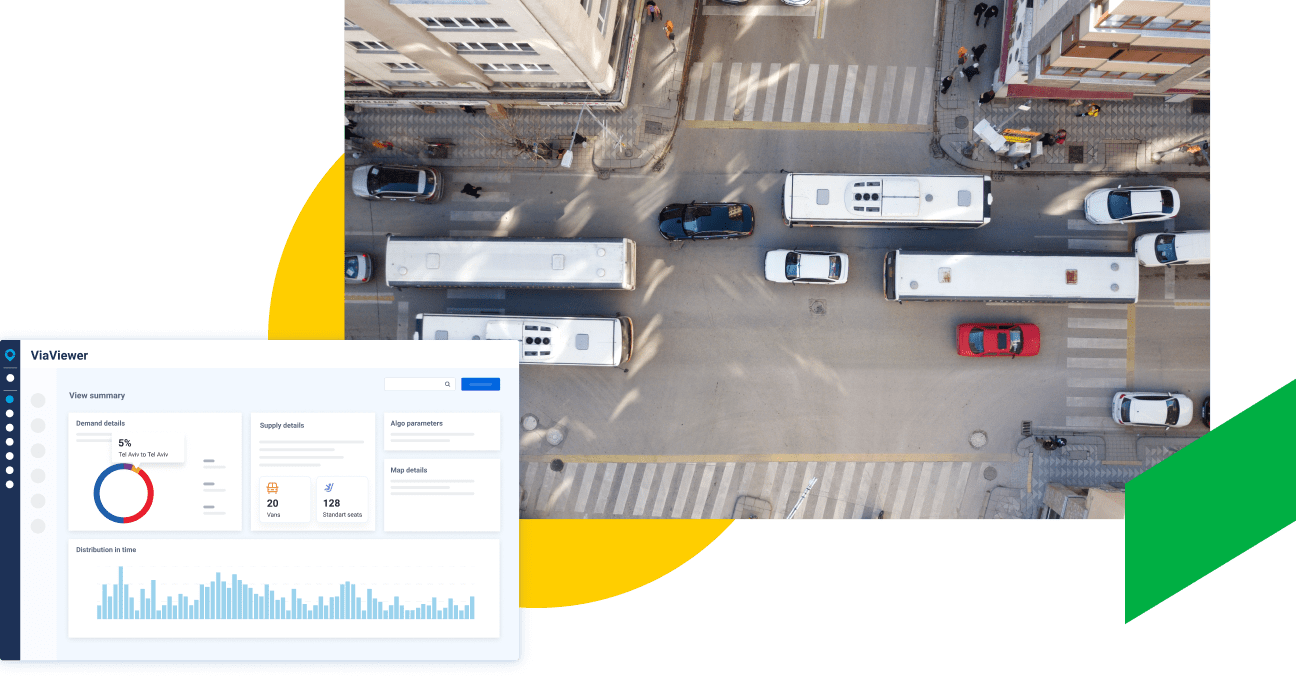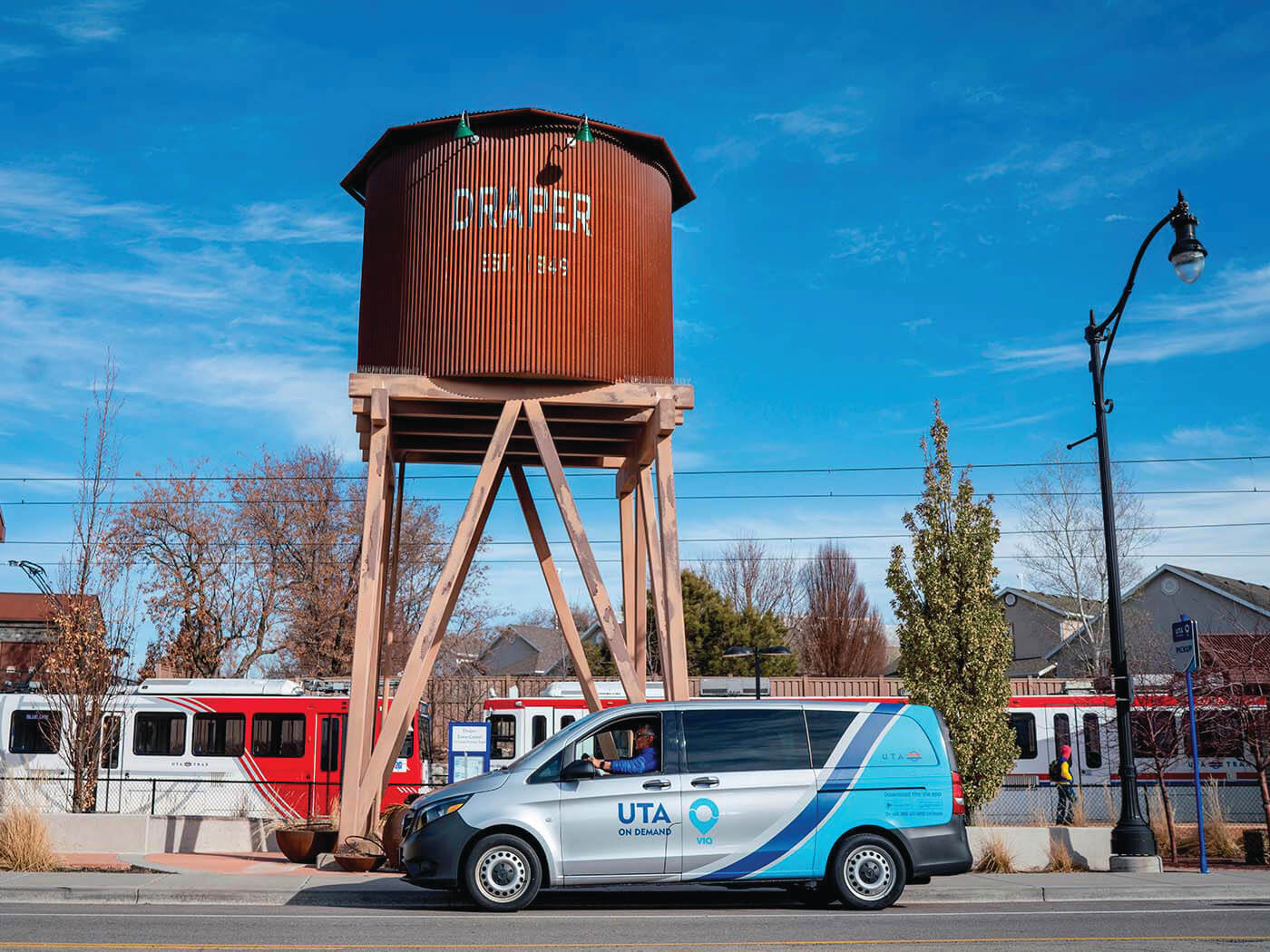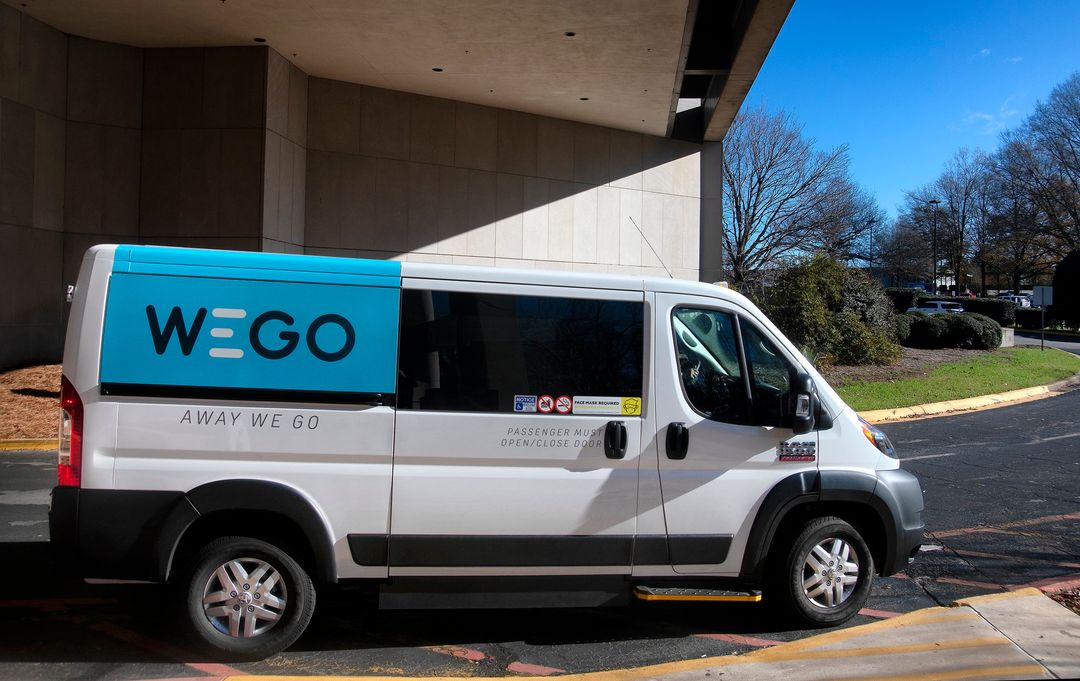Via Strategies
Innovation-driven mobility consulting and transit planning, pairing advanced simulation technology with our experience as the world’s leading developer of public mobility technology.
We help transit agencies, cities, transit operators and other partners develop and optimize multimodal transportation networks and explore how innovative transit solutions can improve quality of service, increase ridership, lower costs, and improve efficiency.
Globally, our team has guided over two hundred public and private partners through complex service planning exercises and feasibility studies. We are ready to support you too.


How we can help.
Adaptability and flexibility are key, as each community and network requires a custom approach. Our wide range of offerings include:
Network resilience strategies
Guide dynamic, multimodal service planning for on-demand and fixed-route surface transit through stresses and shocks.
Transit innovation studies
Modernize public transportation networks with new strategies, technologies, and approaches.
Public engagement
Include stakeholder and community outreach and participation to ensure the community has input in the design of new transit services.
Transit feasibility studies
Assess where and how on-demand transit can be implemented in a service area, leveraging Via’s simulation tools and experience.
Paratransit studies
Evaluate the potential for new technologies and approaches to improve the efficiency and quality of accessible services.
Implementation plans and funding strategies
Provide in-depth financial modeling for innovative transit services based on Via’s vast operating experience around the globe.
Transit network redesigns
Leverage proprietary Via and Remix tools to optimize fixed route bus services through on-demand transit and other innovative modes.
Cost-benefit analysis
Analyze the impact of transit network adjustments and the introduction of new modes and technologies.
Simulation studies
Use proprietary tools to project demand and simulate on-demand transit and multimodal networks.
UTA partnered with Via Strategies to conduct an in-depth study and develop a long-term strategy for the implementation of microtransit and improvement of paratransit across the UTA-service area, which spans nearly 1,400 square miles. The study analyzed potential cost, ridership, and quality of service under different scenarios. Three key use cases for microtransit were explored: first and last-mile trips, community transportation, and off-peak coverage.

Hall County, Georgia engaged Via to assist in a study and simulation that replaced some underperforming fixed routes and dial-a-ride services with microtransit in the Gainesville-area. After implementation, the new service cut the cost per trip by 50% and grew ridership by 20% in two months.
Read the case study